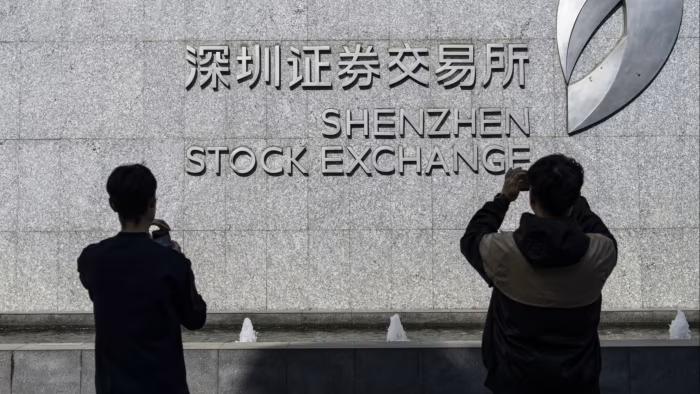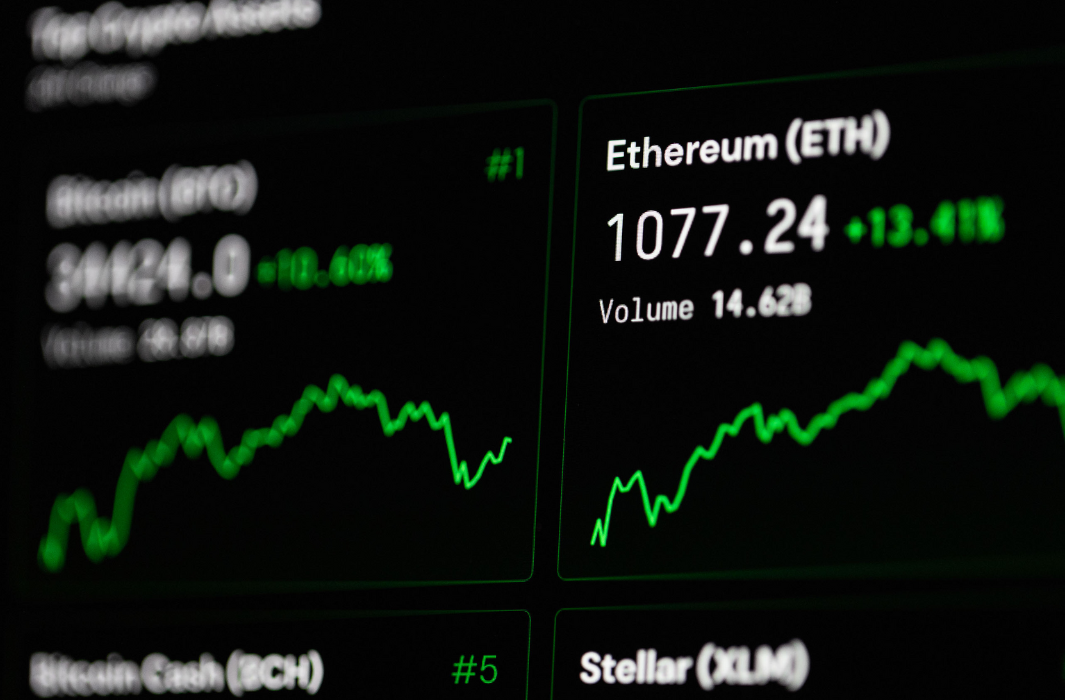Bitcoin and Asian Equities: Are They Losing Capital to Chinese Stocks?
The Rise of Chinese Stocks
I have come to the conclusion that Chinese stocks have gained a lot of growth over the last decade, driven by China’s speedy economic takeoff and the friendlier regulatory environment for companies. This growth has resulted in the inflow of both domestic and foreign investors, many of whom are looking for an opportunity to invest in one of the world’s biggest and quickest-developing economies.
Economic Growth
I would like to inform you that China has not lessened its GDP growth rates. China has still been running a high economic growth rate in comparison to other global economics; it is true that the growth rate is 6-7%. still, this rate is much higher than in the West. An insightful deed done by China is that the robust economic performance has made Chinese equities attractive to investors due to the potential for high-growth opportunities.
Government Support
Credit must go to the Chinese government because it has taken the leading role in growing the domestic industries like technology, healthcare, and renewable energy. The policy initiatives like the “Made in China 2025” and the desire to nurture a domestic semiconductor industry has attracted the investments to these sectors. It is my view that the government’s support aids in reducing risk and increasing confidence in the investors who see the government’s intention to be present for even the longest time for the Chinese companies.
Belt and Road Initiative (BRI)
On my part, I have noticed that the BRI, which is a China-adopted strategy toward global development, has taken the China factor to a bigger degree. The finished inter-country intercontinental and inter-country satellite projects in Asian, African, and European regions Closer relationships through trade, infrastructure, and investment resulted in China’s footprint uncountable being one of the major ones attracting investors to the stock market of China.
Technology and Innovation
In my analysis, China is identified as one of the global authorities in the realm of technology and innovation. Alibaba, Tencent, and Baidu are the companies that have not just made themselves the leaders of their domestic market but have also invaded the international territory. I think the focus on technologies such as artificial intelligence, 5G, and green energy production can be seen as that China has become a haven for those who want to invest in the future technology.

Bitcoin’s Volatility and Challenges
It’s interesting how people view innovation; while some look at Bitcoin as a novelty digital currency and a new investment class, others regard it as a controversial novelty. This is evidenced by the fact that the cryptocurrency, which rose to meteoric heights and drew in a lot of the buzz and investment, has been particularly volatile and, at the same time, faced the regulation of the state that some of its investors had to reconsider their decisions.
High Volatility
From my own observation, Bitcoin was very much unstable at times when the price of it would drop or rise in a matter of days. I remember that in 2021, Bitcoin surged to a record high of about $64,000 in April but it fell by July to around $30,000 many times. This unpredictability of the price of Bitcoin introduces a great risk, and it has been one of the reasons why investors are scarcely willing to expose a significant part of their portfolio in the volatile environment of this digital asset.
Regulatory Uncertainty
Listed down are some of the reasons why states, as a collective, are unable to make regulation on Bitcoin and other digital currencies work. Despite many countries being pro-cryptocurrency, China has slammed the door closed on trading and mining in the sector. As a matter of fact, the ban on digital currency mining in China in 2021 dampened investor sentiment and caused a sharp decrease in the value of Bitcoin, fueling doubts about the future of cryptocurrency in the world’s second-biggest economy.
Environmental Concerns
Besides, as the writing of this document, mining Bitcoin seems to be expensive and energy-absorption and has drawn pollution concerns more and more. Investor engagement is at peak levels, as we have seen in Asia, where references to Bitcoin’s energy use have led detractors point to the asset. This matter is acute in China, which for the past several years has been actively pushing for cleaner energy and green initiatives, activities that also served to discourage Bitcoin investors from going there.
Competition from CBDCs
After reading much toxicity about Bitcoin and Diggy being a threat to this and that, I have gotten the impression that some people are labeling Central Bank Digital Currencies like how Bitcoin is branded as a villain. The trend of more and more states coming up with their own digital currencies can serve as a tough challenge for Bitcoin in the near future. The world anticipates the Digital Yuan to contribute greatly to China’s economy and even be a standard in the world for global trade among the other countries which might result in lesser demand for Bitcoins in China and other countries if it happens.
Asian Equities: Sluggish Performance and External Factors
Based on my analysis, China’s stock market is quite stable, whereas the regional stock indexes of other countries in Asia, especially in Japan, South Korea, and India, didn’t level up. Several reasons were contained in this list to explain the situation, and as a result, some of the investors decided to put their money into Chinese companies.
COVID-19 Impact
One of the hardest hit sectors in Asia countries is the covid-19 pandemic that came with problems such as supply chain disruptions, decreased consumer spending, and the rise of anxiety. Nevertheless, while China was the first to be affected and the first to recover, it did not only rebound but also outperformed all other Asian stock markets.
Global Trade Tensions
If I look at this from a birds-eye-view, the trade war between the U.S. and China affected the Asian equity market the most. Although the Chinese firms that benefited from government support were able to withstand some of the behemoths, the limited openings in the other Asian markets were palpable. Espionage threats, taxes, and the indecision of the leadership were a constant overseer for the shareholders who were pulling the investments back from the areas of the countries between them.
Currency Fluctuations
India and Indonesia, like other fast-changing trend-based countries in the planet, are the playing ground for exchange-rate risks which affect overseas investors who view such countries as less attractive for credibility in return of investment. Currency depreciation leads to weakening of international investments, which causes a less influx of those investments to the mentioned countries. On the other hand, China’s well-controlled financial system helped the currency stabilize and hence attract more investors.
Geopolitical Risks
In my view, the political tensions in the Asian continent like the Myanmar conflict, North-South Korean tensions, and the South China Sea dispute have amplified the risks of investing in the region. Although these risks occur in other equities, I see the cautiousness of investors towards Asian equities as a factor for that as well. People are looking at the prospect of stability and growth in their portfolios.
Shifting Capital from Bitcoin and Asian Equities to Chinese Stocks
Bitcoin (BTC) may be losing its leading days and perhaps you have already noticed that some of the investors are moving their money from the digital currency to Chinese stocks. I witnessed this change in first hand and explained to investors some of the reasons why this was happening.
Lower Risk
I started noticing that slowly but surely Chinese stocks, particularly in niche areas such as technology and healthcare, are being considered as a safer bet than Bitcoin in my trade. Bitcoin is very volatile, which is why some people are anxious, however, the Chinese stocks that are backed by the government and the economy that is often more stable make investors feel comfortable buying into this market. Consequently, I count myself among those.
Growth Opportunities
The trend of China’s GDP growing is insightful and the GDP is likely to grow faster than it in many neighboring countries. I personally prefer to invest in emerging markets and have discovered China is the best option for me due to its high growth potential. I am particularly interested in the points within the potential such as the period of the ecommerce wave and et cetera.
Clearer Rules
Although there are many complicated regulations for companies in China, they are still one step ahead as to bitcoin which is notorious for the changing and unsystematic regulation. I observed that the government was very firm. Consequently, I was able to ‘deflect’ this negative sentiment and sift through where the “strict rules like those for the traditional regular stock trading are.”
Diversification
As for people like myself who prefer diversifying the risk and invest in every corner of the globe, the addition of Chinese stocks can definitely help in the spreading out of the risk. Be it an eye to fast development, Chinese companies are going globally in a more predominant way. If I invest, then it does not matter whatever the lot it may face still I will be able to pile up my resources without considering the regions and categories of industries.

Is This Shift Permanent?
It is of the opinion that we have to discuss whether money is being transferred from Bitcoin and South-East Asian equities to China’s stocks in a forever way or for a short time. As someone who keeps a close watch on the equity market, I notice that these flows are usually temporary and can be caused by various reasons.
Cyclical Nature of Markets
From my experience, there is a natural cycle surrounding the financial markets. I have witnessed the capital transferred based on economic data, various geopolitical events, and investors’ signal. Bitcoin, for example, has been in boom-and-bust circles various times in the past. It might well be followed by a period of recovery in the future.
Long-Term Growth in Asia
On the one hand, I do find Asian equities difficult to even think about a future with as the region’s future what remains very vibrant. The way (I have seen) countries such as India, South Korea, and Vietnam change is impressive. In my view, as they are scaling up their stocks as their economies prosper, they could attract investors to their shares. Moreover, I expect that as supply chain disruptions conclude and international trade normalizes the market products will be more selective for domestic and global investors.

Bitcoin’s Future
Despite facing tough regulation and environment problems, Bitcoin has continued to survive and still remains a unique asset supported by a group of investors. The catalyst for improvement in the Crypto space and consequently more Bitcoin investments should come from the growth of other financial players and the advance of the blockchain infrastructure.
Conclusion:
In my opinion, especially the country shift from Bitcoins and the Asian market to the Chinese one seems to be one of the basic trends of the day’s financial situation. It can not grow so rapidly without China’s extraordinary infrastructure, government policies, and the pool of well-educated and tech-savvy people backing going to be the sources of this great income. China’s equity is the top one growing from an environment of instability through proper management and technology adaptation by the investors that use the proper attitudes and the knowledge of the markets.
Even though I believe this development may continue in the short term, the constant necessity for investors to adapt through the markets and the cyclic nature of investments remains the same for Bitcoin and broader Asian equities. At no time is it a guarantee of success and once for all better investments are found. It’s equally my observation that savy investors have pulled money from Bitcoin and then invested it in either the Chinese stock market or US-based ETFs during a glut period.

1 thought on “Bitcoin and Asian Equities: Are They Losing Capital to Chinese Stocks?”